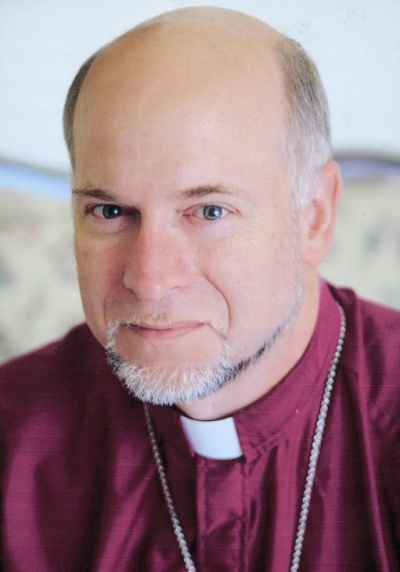Episcopal bishop disciplined for opposing gay marriage says he plans to appeal Church-enforced punishment

An Episcopal Church bishop who was punished for refusing to allow gay marriages in his diocese has stated that he plans to appeal the punishment.
Bishop William Love of the Episcopal Diocese of Albany had his ministry officially restricted by the national church over his refusal to enforce a recently enacted resolution allowing congregations in his regional body to bless same-sex marriages.
“During the period of this restriction, Bishop Love, acting individually, or as Bishop Diocesan, or in any other capacity, is forbidden from participating in any manner in the Church’s disciplinary process in the Diocese of Albany in any matter regarding any member of the clergy that involves the issue of same-sex marriage,” stated Presiding Bishop Michael Curry, head of The Episcopal Church.
“Nor shall he participate in any other matter that has or may have the effect of penalizing in any way any member of the clergy or laity or worshiping congregation of his diocese for their participation in the arrangements for or participation in a same-sex marriage in his diocese or elsewhere.”
In response to Presiding Bishop Curry’s decision, Bishop Love said in an official letter released last Friday that he was planning to challenge the disciplinary action.
Love also noted that his appeal served the additional purpose of attempting to overturn the resolution passed last year that compelled his and other dioceses to allow gay weddings.
“I have already verbally informed the Presiding Bishop’s Office of my plans. This will soon be followed by an official written appeal as required by the Canons,” wrote Love.
Love also explained that during the appeal process he will respect the decision that partially restricts his ministry, but added that he has “not changed my understanding or teaching regarding the sacrament of Holy Matrimony.”
Last July, the Episcopal Church’s General Convention approved Resolution B012, which expanded the right for same-sex couples to marry in all dioceses, even ones where local bishops theologically object.
While the new resolution still gave clergy the right to refuse to officiate same-sex weddings, bishops opposed to same-sex marriage rites must call on another bishop to provide pastoral support for the couple and a clergy member to perform the ceremony.
Last November, Bishop Love released a pastoral letter explaining that same-sex wedding ceremonies will not take place in his diocese, despite Resolution B012.
"Jesus is calling the Church to follow His example. He is calling the Church to have the courage to speak His Truth in love about homosexual behavior — even though it isn't politically correct," wrote Love.
"Sexual relations between two men or two women was never part of God's plan and is a distortion of His design in creation and as such is to be avoided. To engage in sexual intimacy outside of marriage between a man and women, is against God's will and therefore sinful and needs to be repented of, NOT encouraged or told it is OK."
Love also said he believes both his denomination and overall Western society "have been hijacked by the 'gay rights agenda,'" and that pro-LGBT Episcopalians have been "received into believing a lie that has been planted in the Church by the 'great deceiver' — Satan."
In addition to the Diocese of Albany, the other impacted dioceses include Dallas; North Dakota; Springfield, Illinois; Tennessee; the U.S. Virgin Islands; and two of the denomination's Florida-based dioceses, the Diocese of Florida and the Diocese of Central Florida.
The Rt. Rev. Daniel H. Martins, bishop of the Diocese of Springfield, told The Christian Post in an earlier interview that he considered Resolution B012 a “lesser evil.”
“It is preferable to General Convention simply making no provision at all for dioceses that retain the traditional Christian teaching on marriage,” said Martins.
“But it deeply undermines the relationship between a bishop and the parishes of that bishop's diocese. It hampers the bishop's ability to be the chief teacher and chief liturgical officer in a diocese.”
The Rt. Rev. George Sumner, bishop of the Episcopal Diocese of Dallas, told CP in an earlier interview that while he believed Resolution B012 was “flawed,” he also considered it “a good-faith effort to maintain unity amid strong theological difference.”
“We are doing our best to implement it as we are required to do, and three of our rectors have requested to receive alternative episcopal oversight,” said Sumner.
“While we do not agree with the Presiding Bishop [Michael Curry] on the marriage issue, he has been a friend to traditional Episcopalians. Meanwhile, the Book of Common Prayer, our standard of doctrine, remains unchanged.”



























